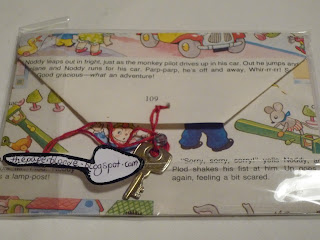PB: Maybe, but the candles look so striking in the darkness, and that seems to be attracting onlookers! It’s incredible that you were able to pay your rent from this. Maybe its the fact that everyone is a bit tight at the moment…maybe it could pick up again… How do you make your living?
Nikolas: I live in Shoreditch in squat.
PB:How is that going?
Nikolas: Ahh, ok, ok. I spend most of yesterday on roof, fixing. Such enormous space, such windows, such incredible light! Rich man own house, in business, and… I think he would be very, very unhappy if he knew people were living in his house! (laughs)
PB: Where are you from originally?
Nikolas: I am Czech.
PB: Why did you come to London?
Nikolas: By…accident!
PB: (laughs) Oh!?
Nikolas: I drive VW van across Europe, van break down here, and I take to scrap and I stay here (pause)… and I very, very glad that I end up here! (laughs softly, as he begins to sculpt cubist forms in the hillock of sand, smooth plains with his spade, which begin to resemble, fascinatingly, the formations and furrows of my face).
PB: I’m excited to see the outcome. I’ve never seen myself in sand!
Nikolas: You see yourself in painting?
PB: Yes, often unflatteringly! I’ve done a bit of life modelling.
Nikolas: Ahh. (Pause) Sometimes I draw from life, capture the curves of the body and then recreate in sand. But...well sometimes I find it hard to trust myself!… Once I draw seventeen year old girl, and I say to her “Do not look in my eyes”, and she look in my eye...
PB: And?
Nikolas: And I go almost mad, and she,… she run away!
PB: (scandalised, changes subject) Have you ever modelled yourself? It’s good money.
Nikolas: Yes… I model for restoration artist for a full-length portrait of Christ on the cross. They say I have legs of Jesus (gestures ropey calves and gnarled brown feet). Very uncomfortable position for so many hours.
PB: I can imagine! Have you ever thought of exhibiting your own work?
Nikolas: I think about opening a gallery in our house…the space, the light, is so perfect… but I worry about the authorities.
PB: Maybe you could make it a sort of private members club sort of thing? Do up the rooms and invite friends and acquaintances that appreciate the art and the anarchy, cook up load of food, and they can look and buy…?
Nikolas: (mutters something about neighbours. Begins to soften the planes of the face with a spray bottle of water, dampening the sand so that rivulets of water trickle down the ochre coloured contours of my cheeks, stares hard into my face, and begins to lengthen the nose of the now almost life-like hillock). But, I do not want to exhibit my own art. I want to exhibit the art of others. (Begins to form my eye sockets from a sharp tool. I can tell the sand is becoming like me as I can almost feel a tingle in the corner of my eye, where the tool manipulates my sand twin.)
PB: Is it not frustrating to see your work swept away every time?
Nikolas:(pause) I would be frustrated if I could not finish it. Every day, blank canvas…
Nikolas wants to go and get us ciders from the offy…he hasn’t earned enough money from his busking tonight for two cans of Strongbow, but, thank goodness, he has a fiver in his hat. The following day, Nikolas turns up at my work, spade and all. He has looked about for me, and wants my number so that we can meet in daylight. It’s curious to see him, the tiny, bearded, bespectacled wanderer, looking every bit a water nymph, away from his sandy occupation. Yesterday, I got a text: “Broke my shoulder. Off beach for a while. Can draw with right hand.”
Find Nikolas along the South Bank, day and night.






















































